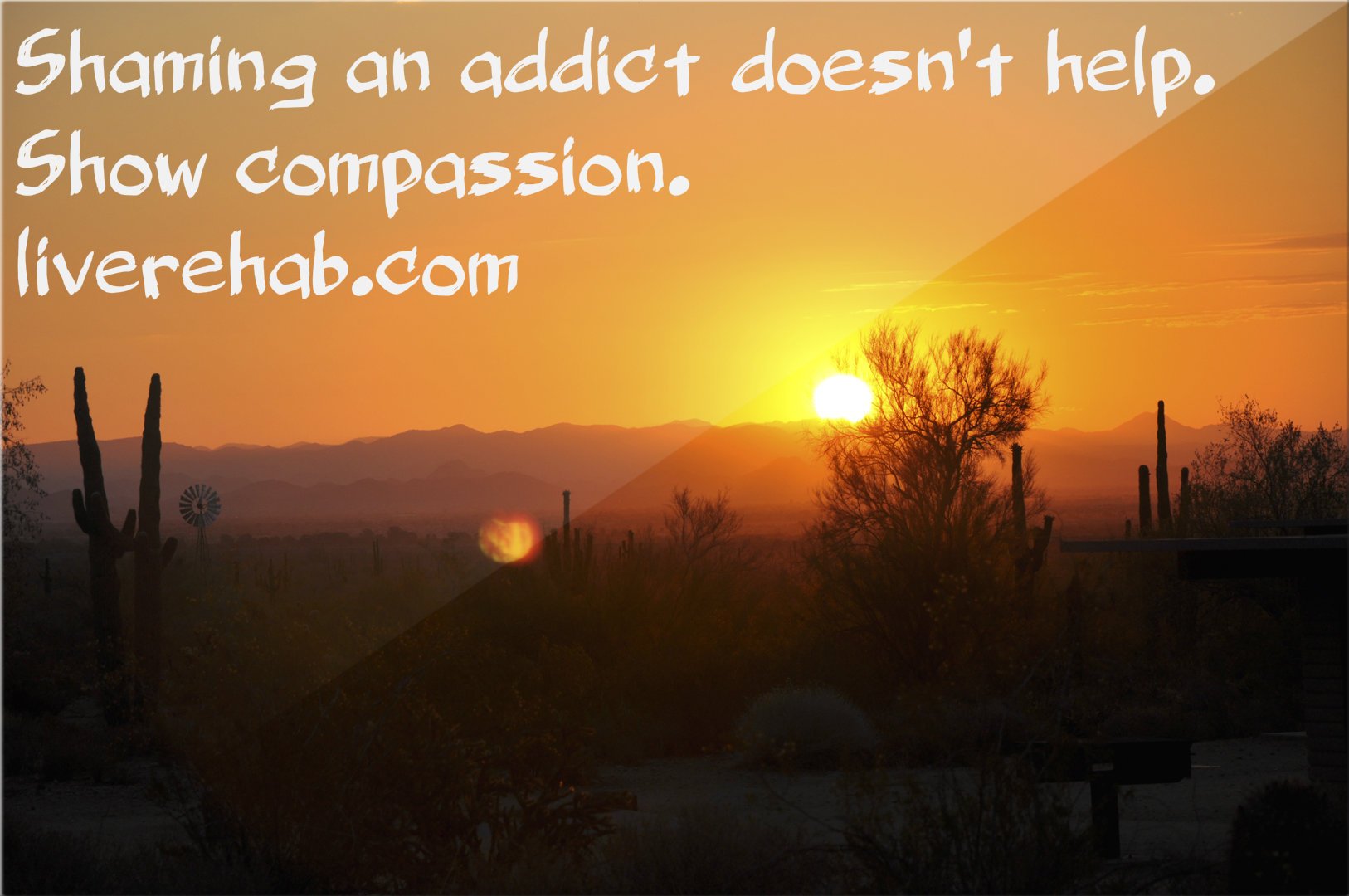Feelings of Shame
Addiction is such a complex topic. Nobody wants to be addicted to drugs and alcohol. Addiction seems to creep up and oftentimes, the person is wondering how they ended up in the situation to begin with. Feelings of shame are common during the cycle of addiction.
When someone you love and care about has an addiction it can be hard to stay calm and encouraging. I don’t believe family or friends should be subjected the abuse that addicts sometimes unintentionally force upon them but remember this: two wrongs, don’t make a right. Addiction doesn’t make someone a bad person.
Recovery From Addiction and the Impact of Shame
If you really want to help someone who is addicted, it’s important to be their rock and know when to walk away. There’s so much gray area but one thing that should never ever happen, is the belief that shaming someone will only help. People who are addicted to drugs and alcohol will not take shaming well and more often than not, feeling shame leads to a path of self destruction.
So what can you do if you find yourself spouting off shameful insults to someone who is struggling with active addiction?
Here are some tips:
- Understand it’s not about you
- Show true compassion and empathy
- Don’t take it personally – people say and do horrible things when they are not in the right frame of mind.
- Take care of yourself first – make sure you have the energy to stay calm
- Know when to walk away. Walking away is far better than resorting to shame

People with an alcohol addiction or drug addiction will often experience various levels of shame. For some people the shame is acute and short lasting. For others, their shame feeds addiction over a much longer timeframe. This is why it is incredibly important to understand the role you play in helping them to recover.
Does shaming impact relapse rates?
It’s hard to know whether or not toxic shame has a real impact to relapse rates for people dealing with addiction. However, it isn’t too hard to see the connection between someone who has had feelings of toxic shame and the impact on their mental health. Negative self-talk is often prevalent in those trying to get sober and shaming someone would be the wrong approach if your plan is to support them wholly.
While the likelihood of relapse in general is quite high for those dealing with substance abuse disorders or behavioral addictions, when someone has applied the right approaches to their physical health and mental health they are much more likely to be successful. The Sobriety Success Method is our approach and comes highly recommended from those who use it. Access to resources or programs such as ours shuold not be a barrier to recovery and the explosion of the internet has enabled people to get the support they need anywhere they need it.
According to the Association for Psychological Science:
Feeling shame about past instances of problem drinking may increase the likelihood of relapse and other health problems, according to a new study in Clinical Psychological Science , a journal of the Association for Psychological Science The study, conducted by researchers from the University of British Columbia, shows that behavioral displays of shame strongly predicted whether recovering alcoholics would relapse in the future.
Ask whatever treatment provider you are working with what their thoughts are or how the influence of shame affects the health outcome of those who are addicted.
If you need help overcoming any kind of addiction, Live Rehab is here to help. We’ve got online recovery programs to suit any budget.